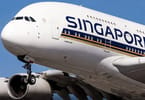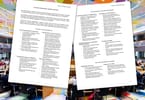In most instances when a terrorist attack occurs in a major tourism destination, the local or national tourism authorities tend to release a rapid-fire statement to its stakeholders and its key source markets assuring them that travelers are safe and security has been upgraded. The vicious and deadly terrorist attacks in Paris against the Charlie Hebdo magazine and the Hypercacher Kosher supermarket were attacks against free speech and the French Jewish community. While they generated fear among Parisians and visitors alike, they were one step removed from being perceived as blatant attacks against tourists. Consequently, French tourism officials and French travel bureaus displayed an understandable reluctance to comment directly to the world media.
Immediately following the terrorist attacks it was instantly clear for all the world to see that French security services were mobilized to capture or kill the perpetrators of these crimes and to upgrade security in Paris generally. The massive solidarity rally held in Paris on January 11 which involved an estimated 3.7 million French citizens and political leaders from over 40 countries did not really require further embellishment from French tourism industry leaders.
In fact, it is almost a week since the attack against the Charlie Hebdo magazine and now there is the beginning of a campaign led by Parisian tourism marketers and private tourism business to restore tourism confidence in Paris. In a nuanced approach the French tourism industry have chosen quite correctly to focus on protecting the reputation of Paris as a safe tourism destination rather than all of France. In the parlance of tourism crisis management this is an appropriate employment of the isolation strategy. Focus on highlighting the problem (safety concerns in Paris) and highlight the broader context that the rest of France is relatively free of these concerns.
The French tourism leadership in this instance has taken a correctly cautious approach in its response to the terrorist outrages of the past week. After all they have a great deal of cachet to protect. France is the world’s most visited destination. In 2014 an estimated 83 million international tourists visited France spending over US$200 billion and contributing 7.2% of the nation’s GDP. An ill-considered or rash statement which could engender more fear than it allays could potentially damage the reputation of French tourism.
France has enjoyed immense resilience as a tourism destination despite the fact that it has had a long history of episodic outbreaks of social and political unrest. There has also been some high profile criminal activity directed at tourists (most recently Chinese tourists) in some of the country’s largest cities. Nevertheless, the overwhelming perception which attracts so many tourists to France from around the world is the French aura of romance, culture, style, fine art and fine cuisine coupled with the beauty of the French countryside.
The events of last week demonstrate that while France has long enjoyed a deserved reputation as the world’s most sought after tourism destination, a good reputation is a precious but also very fragile asset. While the French tourism industry leadership has been understandably cautious in making rash responses to the safety concerns of tourists and foreign governments it is an issue that needs to be addressed quickly, visibly and transparently. An obvious start to restoring confidence would be for the French Tourism Bureau to engage in some targeted hosting of travel industry and media opinion leaders from key source markets so they can see and report on the state of safety in Paris. One of the key findings from tourism research commissioned by both the UNWTO and WTTC is that safety is now regarded as the most important determinant of a traveller’s decision to visit a destination.
While The French Tourism leadership is being appropriately cautious in addressing tourism safety in their web sites they cannot afford the luxury of ignoring it.
David Beirman Is a senior Lecturer in Tourism at the University of Technology-Sydney
WHAT TO TAKE AWAY FROM THIS ARTICLE:
- In fact, it is almost a week since the attack against the Charlie Hebdo magazine and now there is the beginning of a campaign led by Parisian tourism marketers and private tourism business to restore tourism confidence in Paris.
- An obvious start to restoring confidence would be for the French Tourism Bureau to engage in some targeted hosting of travel industry and media opinion leaders from key source markets so they can see and report on the state of safety in Paris.
- One of the key findings from tourism research commissioned by both the UNWTO and WTTC is that safety is now regarded as the most important determinant of a traveller's decision to visit a destination.






















